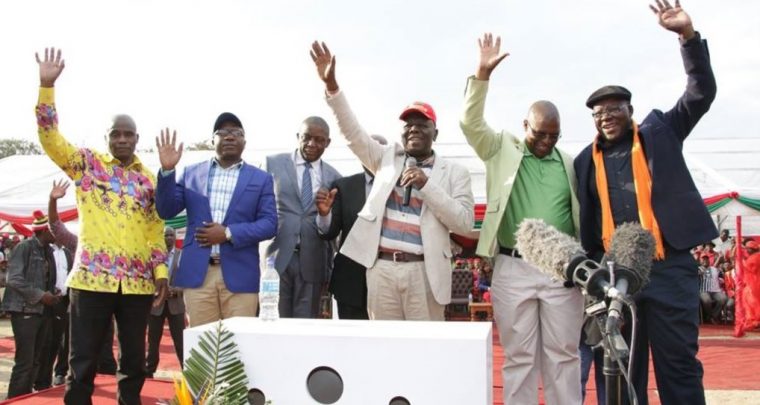It is up to the MDC Alliance to make it difficult for ZANU-PF to rig the upcoming elections. This can be achieved by uniting the opposition.
Zimbabwe is scheduled to hold harmonised elections between 21 July and 21 August. If all goes well, and the military-led government does not take forever to release election results as was the case in 2008, the country will have a new administration by September.
Will this new administration be a reconfigured Zimbabwe African People’s Union – Patriotic Front (ZANU-PF), or one made up of an opposition alliance led by the Movement for Democratic Change – Morgan Tsvangirai’s (MDC-T) Nelson Chamisa?
The answer to this question depends on two interrelated issues. If opposition parties succeed in setting up a solid grand coalition before the plebiscite, and the Zimbabwe Electoral Commission (ZEC) organises free, fair and credible elections, then opposition will win. The inverse also holds true.
In November 2017, long serving leader, then President Robert Mugabe, was forced to retire through a military-led coup, and was replaced by his protégé, Emmerson Mnangagwa.
Mugabe’s forced retirement resulted in a temporary resolution of succession issues within the ruling party, but did not resolve problems of factionalism.
In mid-February, Zimbabwe witnessed the demise of Morgan Tsvangirai, the long serving leader of the MDC-T. His death brought to the fore succession problems within his opposition party.
Consequently, one of the party’s three vice-presidents, Nelson Chamisa, quickly took control of the party in what some commentators have described as a “coup”.
These two events present serious challenges for opposition politics in Zimbabwe. I will discuss these challenges after a short theoretical detour, which is necessary to locate Zimbabwean opposition parties’ value proposition.
The exercise of opposition politics is about deepening and strengthening democracy. It also affords citizens the space to actively participate in their own governance.
If indeed democracy is about opening up closed political systems, then opposition parties are avenues by which participation and inclusivity can be achieved. Above all, opposition parties should seek to provide an alternative hegemony to that which is provided by the incumbent.
This requires of opposition parties to model themselves as politically, economically, socially and morally superior than the incumbent.
Continued next page
(486 VIEWS)
